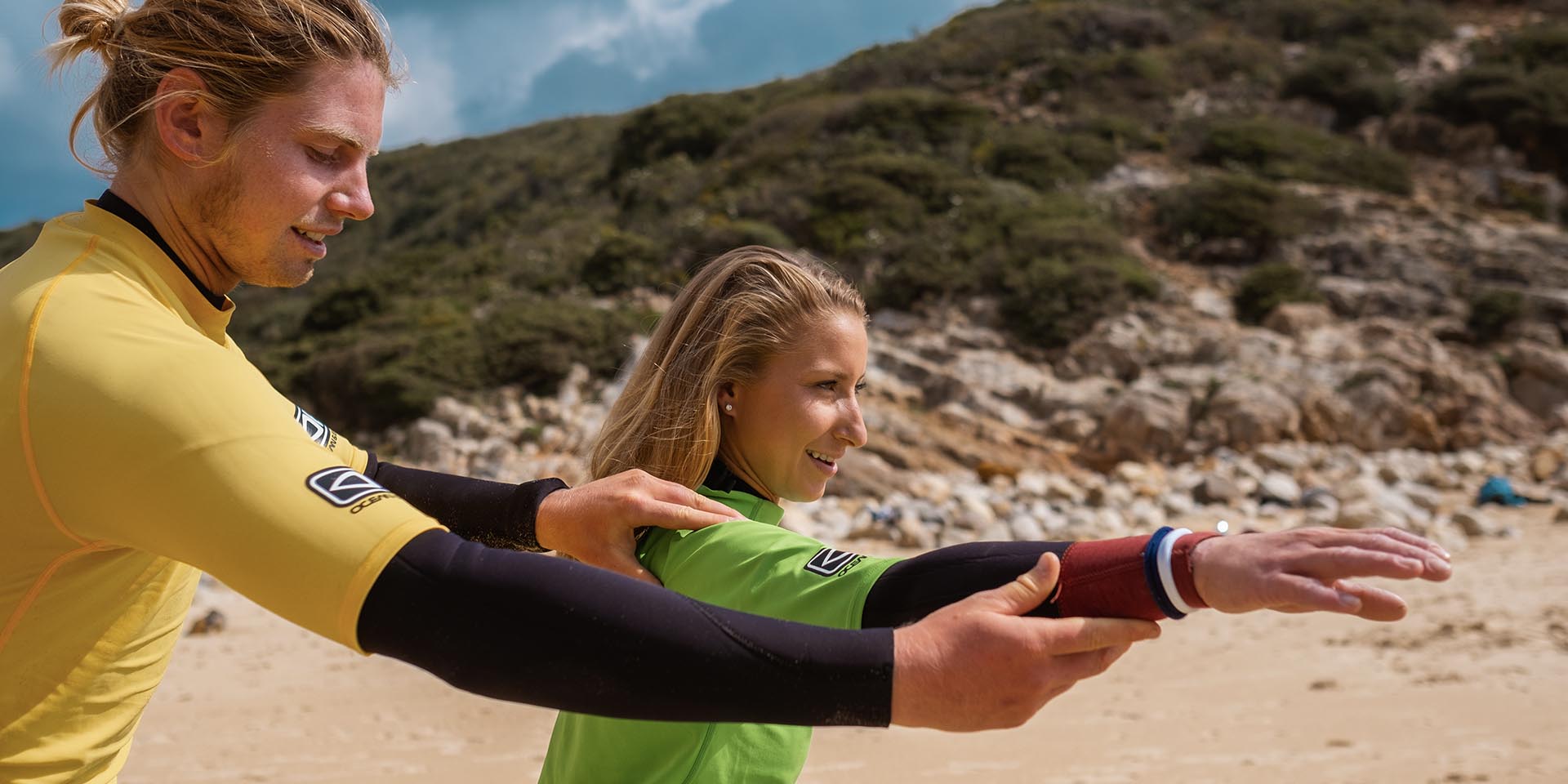
Home » 10 Common Surfing Beginner Mistakes and How to Avoid Them
10 Common Surfing Beginner Mistakes and How to Avoid Them
Learning how to surf can be both thrilling and challenging. However, as a beginner, it’s easy to make mistakes that can slow down your progress or even put you in danger. In this article, we’ll discuss 10 common surfing beginner mistakes and how to avoid them.
Table of Contents
- 1. Choosing the Wrong Surf Spot
- 2. Using the Wrong Board
- 3. Standing Up Too Early
- 4. Not Paddling Correctly
- 5. Looking Down at the Board
- 6. Not Practicing Outside of the Water
- 7. Overestimating Your Abilities
- 8. Not Respecting Other Surfers
- 9. Ignoring Weather and Tide Conditions
- 10. Not Wearing the Right Gear
- Conclusion
1. Choosing the Wrong Surf Spot
Choosing the right surf spot is essential for a beginner surfer. Avoid crowded beaches with heavy waves or strong currents. Instead, opt for a less crowded beach with smaller waves and a sandy bottom. Consult with locals or a surf instructor to find the right spot for your skill level.
2. Using the Wrong Board
Choosing the wrong surfboard can hinder your progress and make surfing more challenging. For beginners, it’s best to start with a soft-top or foam board. These boards are more stable, buoyant, and easier to maneuver. Avoid using a shortboard or a board that’s too small for your weight and height.
3. Standing Up Too Early
Standing up on the board too early is a common mistake among beginner surfers. This mistake can throw off your balance and cause you to wipe out. Wait until you feel the wave lift you up before popping up to your feet.
4. Not Paddling Correctly
Paddling is a critical part of surfing. As a beginner, it’s essential to learn how to paddle correctly. Paddle with your arms, keeping them close to your body, and kick with your feet. Practice your paddling technique on flat water before heading out to the waves.
5. Looking Down at the Board
Looking down at your feet or board while surfing is a common mistake. This mistake can cause you to lose balance and wipe out. Instead, keep your eyes focused on the horizon and use your peripheral vision to maintain balance.
6. Not Practicing Outside of the Water
Surfing requires both physical and mental strength. As a beginner, it’s essential to practice outside of the water to improve your surfing skills. Stretching, practicing pop-ups, and strengthening your core can all help you progress faster.
7. Overestimating Your Abilities
Overestimating your abilities is a mistake that can put you in danger. Don’t attempt to surf waves that are beyond your skill level. Always be honest with yourself and choose waves that you can handle.
8. Not Respecting Other Surfers
Surfing has its own set of unwritten rules and etiquette. Not respecting other surfers can lead to conflicts and even dangerous situations. Give other surfers their space, don’t drop in on their waves, and always communicate if you’re in their way.
9. Ignoring Weather and Tide Conditions
Ignoring weather and tide conditions can be dangerous for any surfer, especially beginners. Before heading out to surf, check the weather and tide conditions. Avoid surfing during storms, strong winds, or changing tides.
10. Not Wearing the Right Gear
Wearing the right gear can protect you from injuries and make surfing more comfortable. Always wear a leash, rash guard, and sunscreen when surfing. Wetsuits can also keep you warm during cold water temperatures.
Conclusion
Avoiding these common surfing beginner mistakes can help you progress faster and enjoy surfing safely. Remember to choose the right surf spot, use the right board, practice paddling, and respect other surfers. Keep practicing outside of the water, and always wear the right gear. With these tips in mind, you’ll be well on your way to becoming a skilled surfer. Happy surfing!



